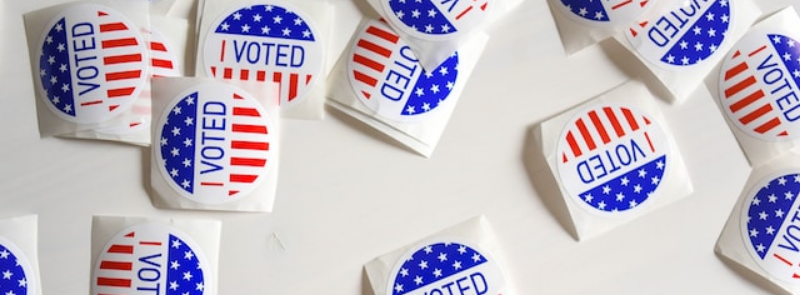
When It Occurs
Every Tuesday next after the first Monday in November
Timeline
Days Passed (838)
# Hashtags
#ElectionDay #VotingIsMyRight
Election Day in the United States is the designated day for the general elections of federal public officials. As determined by U.S. government statutes, it falls on "the Tuesday next after the first Monday in November," specifically, the Tuesday within the range of November 2 to November 8.
History
- Origins: The practice of holding elections on the first Tuesday after the first Monday in November dates back to 1845, when Congress established a uniform date for presidential elections. This timing was chosen to accommodate the agrarian society of the time, allowing farmers to travel to polling places after the harvest season and avoiding conflicts with the Sabbath.
- Expansion: Over the years, Election Day has expanded to include elections for various state and local offices, as well as referendums and ballot initiatives. The Voting Rights Act of 1965 and subsequent amendments have further ensured that all citizens have equal access to the polls.
Significance
Election Day holds significant importance for several reasons:
- Democratic Participation: It allows citizens to participate in the democratic process by electing representatives and making their voices heard on important issues.
- Civic Duty: Voting is considered a fundamental civic duty and a key responsibility of citizenship.
- Government Accountability: Elections hold public officials accountable to the electorate, providing a mechanism for change and renewal in government.
Types of Elections
-
Federal Elections:
- Presidential Elections: Held every four years to elect the President and Vice President of the United States.
- Congressional Elections: Held every two years to elect members of the House of Representatives and one-third of the Senate.
-
State Elections:
- Governors: Elections for state governors are held in varying cycles, typically every four years.
- State Legislatures: Elections for state senators and representatives, with terms and cycles varying by state.
-
Local Elections:
- Mayors and City Councils: Elections for local government officials, including mayors and city council members.
- School Boards and Other Local Offices: Elections for school board members and other local positions.
-
Ballot Initiatives and Referendums:
- Initiatives: Citizen-proposed measures that are placed on the ballot for voter approval or rejection.
- Referendums: Measures referred to the voters by the legislature for approval or rejection.
Ways to Participate
-
Register to Vote:
- Voter Registration: Ensure you are registered to vote by the deadline set by your state. Registration can typically be done online, by mail, or in person.
- Check Registration Status: Verify your voter registration status and update any changes in address or personal information.
-
Educate Yourself:
- Research Candidates: Learn about the candidates running for office, their platforms, and their positions on key issues.
- Understand Ballot Measures: Read up on any ballot initiatives or referendums to make informed decisions.
-
Vote:
- Polling Places: Find your designated polling place and know its hours of operation.
- Early Voting: Take advantage of early voting options if available in your state to avoid long lines on Election Day.
- Absentee Voting: If you cannot vote in person, request an absentee ballot and follow the instructions for submitting it.
-
Get Involved:
- Volunteer: Volunteer for a political campaign, local election office, or nonpartisan organization to help with voter registration, education, and turnout efforts.
- Encourage Others: Encourage friends, family, and community members to vote and provide information on how to participate.
-
Stay Informed:
- Election Results: Follow election results through trusted news sources and official state websites.
- Post-Election: Stay engaged with your elected officials and hold them accountable by staying informed about their actions and decisions.
Fun Facts About Election Day
- Election Day Holiday: While Election Day is not a federal holiday, several states have designated it as a holiday to encourage voter participation.
- First Woman Voter: Lydia Taft became the first legal woman voter in colonial America in 1756 in Massachusetts.
- Voting Machines: The first use of mechanical voting machines in a U.S. election was in Lockport, New York, in 1892.
Inspirational Quotes About Voting
- "The vote is the most powerful instrument ever devised by man for breaking down injustice and destroying the terrible walls which imprison men because they are different from other men." – Lyndon B. Johnson
- "The ballot is stronger than the bullet." – Abraham Lincoln
- "Someone struggled for your right to vote. Use it." – Susan B. Anthony
Conclusion
Election Day is a vital part of American democracy, providing citizens with the opportunity to influence their government and shape the future of their communities and country. Whether through registering to vote, educating yourself on the issues, volunteering, or encouraging others to participate, there are many ways to engage in the democratic process. Election Day emphasizes the importance of civic duty and the power of every individual's vote.


